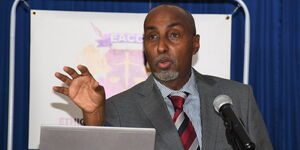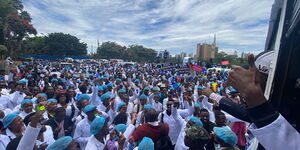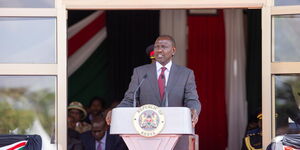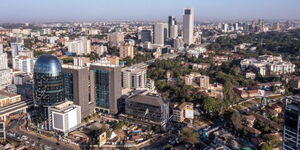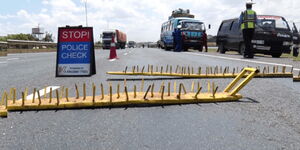Reports swirled on Wednesday, March 15, with some social media users claiming that the International Criminal Court (ICC) had warned Azimio Leader Raila Odinga over planned mass action.
In a series of tweets that were shared by multiple Twitter users, it was claimed that Raila was keenly being watched by The Hague-based court.
It was claimed that ICC shall pursue any attempt to polarise the peace of the country in relevant areas.
"No youth, leader or supporters should participate in any form of protest in Kenya on March 20 or a later date, as the genuine motive of the protests has been hijacked," one Twitter user, Muchiri Gichuri claimed.
Gichuri also insinuated that the ICC asked Kenyans to be aware of the plans to destabilise the polity and therefore emplace strategic measures to forestall and repel such plans on the people.
However, a fact-check through the official communication channels of the ICC revealed that no such information was shared by the court.
Ordinary, public warnings to an individual or a country would be shared on the official communication platforms.
The ICC would also send an email to local media organisations in order to avoid miscommunication and deliberate distortion of facts.
However, closed communications are always directed to individuals or suspects to them or through their lawyers.
The ICC also outlines exemptions when such communications would be made public through reputable media organisations.
"Without prejudice to article 67, paragraph 1 (b), communications made in the context of the professional relationship between a person and his or her legal counsel shall be regarded as privileged, and consequently not subject to disclosure, unless the person consents in writing to such disclosure; or the person voluntarily disclosed the content of the communication to a third party,and that third party then gives evidence of that disclosure," the ICC explained.
Lawyer Pato Daido explained that the invocation of ICC was only meant to add political weight to the matter, and nothing more than that.
"It's possible for ICC to communicate matters directly to the nation without involving the leadership, especially, on issues of international interests," Lawyer Pato noted.
Pato also explained that ICC had largely been used as a deterrence to possible violence, especially after 2007 Post-election Violence.
"Kenya is a signatory to the Rome Statute that established the ICC, as such, it is a Kenyan court by extension of the International Law.
"That is why Kenyans may find it so easy and necessary to use the court as a political scare-crew against their nemesis," Pato elucidated.
The ICC also explains that communications made in the context of a class of professional or other confidential relationships shall be regarded as privileged, and consequently not subject to disclosure.
Above and beyond national interests, the ICC does not warn nor engage in local politics, exempt in the event of eminent international crimes.
"The mandate of the Court is to try individuals (rather than States), and to hold such persons accountable for the most serious crimes of concern to the international community as a whole, namely the crime of genocide, war crimes, crimes against humanity, and the crime of aggression," the ICC explained.

